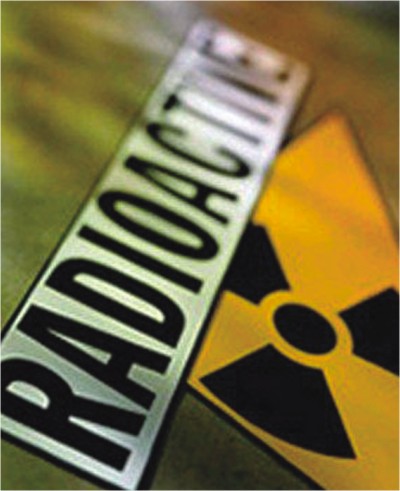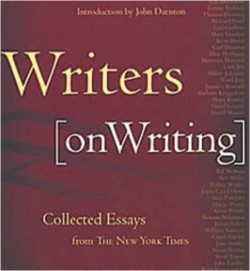
|
Home |
Issues | The Daily Star
Home
|
|
|
First 100 days of the 21st
Two weeks ago, he completed 100 days in office and it is time to look back at the job he has done in restoring America's place in the world and how far he has come to fulfilling his own promise of changing the way things are done in Washington. With the US economy in a free fall, Obama's first priority was of course trying to fix the recession. In his first month in office, he pushed for a massive $800 billion stimulus bill to re-ignite the economy. For those of you taking O-Level and A-Level economics, Obama's idea was to increase government spending through the stimulus bill, leading to an increase in aggregate demand and increase economic growth. This would create jobs and lead the road back to recovery. He increased government budget by nearly 100 billion dollars to again increase total expenditure in the economy and herald the path to recovery. On the financial front, he and his administration, introduced sweeping legislations to buy up the bad debt, which caused the economic crisis in the first place. The Obama administration hopes to see this increase the flow of credit in the economy, allow banks to loan money to businesses and individuals and restart economic activities. Over the past few days, the first of the stimulus money have began to flow in the United States and many companies ranging from construction to electronics, have seen orders begin to pick up. This was why, the rate of job loss has been on the decreasing trend and the stock market has been rallying on the bet by investors that everything will be back to normal levels within a year or two. Although Bangladesh hasn't been hit by the recession as badly as other countries, a quick US recovery is obviously useful as it would mean other developed nations which are importing our goods would recover too, leading to positive economic growth for us. On the foreign policy front, Mr Obama, has been busy trying to fix the image of America, almost ruined by the policies of his predecessor Mr. Bush. He made major overtures towards Iran, claiming that he would reverse decade old policies and actual talk to the hardline regime and open up diplomatic negotiations. This has been met with criticisms, but his strategy of using diplomacy instead of muscles, is slowly beginning to pay off. Iran recently released an American journalist held in its prison and its president Mahmoud Ahmadinejad, is showing signs that he too is willing to work with the Americans to bring peace and stability in the middle east. Obama's approach to displaying America's soft side is having major repercussions through out the world. For the first time in 8 years, global citizens are beginning to trust the US again. Mr Obama also made significant overtures towards the Muslim world. In his first speech as the President, he claimed that he would work with the Muslim world and give a hand to help them up on their way to progress and prosperity. He is scheduled to give a major speech in Egypt in July addressing the Muslim world. His words, coupled with his actions of closing down Guantanamo Bay, banning the use of waterboarding and torture as an interrogation technique has been winning wide support in the Muslim world, which is important in preventing the growth of extremists organization which seeks to grow mainly on the propaganda that America is an 'evil empire bent on distruction of Islam' On the environmental front, Obama, has been slow to act, mostly because of the burden of the financial crisis on his shoulder. Yet, his new budgets, allocated billions of dollars in the creation of 'greener technologies', which will combat global, warming and reduce dependency of polluting fossil fuels. He and his congressional allies are working towards a global warming bill, which is not groundbreaking according to critics, but is one of the first of its kind in the United States. Mr. Obama has been moving at break neck speed in order to face the many challenges facing the United States and the World. His first 100 days has mostly demonstrated his determination to do so. The results of his actions will be seen in the coming days of his presidency. By Reggie Finally, it's nuke time!  WE are soon to enter the digital era of Bangladesh, as we've all been told. We all know, too, that the electricity problem isn't giving any of us an opportunity to “digitize” ourselves. What can we do? Fear not; the ultimate solution for this has been found. Bangladesh and Russia have recently signed a “memorandum of understanding” for exchanging nuclear technology and setting up a Nuclear power plant here. Sure, the technological exchange will be a one way trade. Who knows what other changes this unlikely exchange will usher in for this country? WE are soon to enter the digital era of Bangladesh, as we've all been told. We all know, too, that the electricity problem isn't giving any of us an opportunity to “digitize” ourselves. What can we do? Fear not; the ultimate solution for this has been found. Bangladesh and Russia have recently signed a “memorandum of understanding” for exchanging nuclear technology and setting up a Nuclear power plant here. Sure, the technological exchange will be a one way trade. Who knows what other changes this unlikely exchange will usher in for this country?
But before we get our hopes up, we start with a history lesson. Did you know that we already have a nuclear power plant in Bangladesh? The first nuclear reactor of Bangladesh was installed at “Atomic energy research establishment” at Savar just 40 km away from Dhaka. The thermal power of the reactor is 3,000 kW. Said reactor also has a fancy name, TRIGA. This mean machine is mainly used for educational purposes as well as research, training, and radioisotopes production. Of course, being quite fed up with merely educated brats, we now want educated brats with electricity to back them up, right? Speaking of backing people up with the power of a nuclear reactor we finally have the optimum level of radioactivity to transform an ordinary fellow into a Savior of Humanity type. So get ready because soon our metropolis Dhaka will be swarming with comic-book super heroes in tights saving innocent people from BAD THINGS. Nuke Woman, Radiation Dude, Uranium Man or The Indestructible Fission Maniac what else could you possibly need to feel safe around here? Of course, there does remain the small question of what happens if these “heroes” turn over the dark side? However if you are already morbidly afraid with this radioactive process then you can take a dip in the Buriganga River. The pollution will give you sidekick-grade powers at least, for sure. The good news is we already have reserves of fuel for the nuclear reactor in our backyard. Scientists have already found a total deposit of 20.5 million tons of raw sand, which contains 4.4 million tons of heavy minerals in Cox's Bazar, Chittagong, Noakhali and Patuakhali districts. Trace of heavy metals like thorium and uranium are already confirmed. As the underground music is now having a real bad time, the forsaken heavy metal wannabe bands could conceivably go there to pick up a vibe. Who knows? As scientifically proven (if need be), Bangladeshi people are awesome at adopting new trends. So it will not be long before the electrical fission culture will infiltrate our every day life. “Nuclear call rates” from Telecom companies, Gamma energy drinks and summer collection of Aziz supermarket's T-shits of nuke art, music album from “Dark Fission” featuring “Radiation Screamer” are merely the tip of the proverbial iceberg. The chronicle will go on and on till we have something new to play with. However with the acute shortage of electrical power, we really are in dire need of a solution. Everyone is hoping that nuclear power might, in fact, work for us. The fact is that if it does, we will have all the electricity we could possibly want; even if we continue to always have thousands of illegal electricity lines, enormous system loss and poor infrastructure, there would be no load shedding at all simply because of the surplus. And if by some miraculous reason electrical grid fails we wouldn't have to worry. It's spring time for nuclear power and Bangladesh. By Zabir Hasan Book review  “WHY do you like writing?” This is a question yours truly has faced countless times: as polite openers to small talk at parties, at the start of every Literature class, at creative writing workshops, and so on. The question isn't an easy one to answer. Turning the tables and asking some of the prospective members at the RS recruitment every year, we are reminded of this fact. Many people who say they 'love writing' actually mean that they enjoy airing their views. Not much onus is placed on the art and craft of the writing process itself. Leafing through the pages of this magazine, you might even find yourself thinking, “She sure got that right!” “WHY do you like writing?” This is a question yours truly has faced countless times: as polite openers to small talk at parties, at the start of every Literature class, at creative writing workshops, and so on. The question isn't an easy one to answer. Turning the tables and asking some of the prospective members at the RS recruitment every year, we are reminded of this fact. Many people who say they 'love writing' actually mean that they enjoy airing their views. Not much onus is placed on the art and craft of the writing process itself. Leafing through the pages of this magazine, you might even find yourself thinking, “She sure got that right!”
Writers are at once some of the most over-hyped, glamorized, misunderstood and maligned people. Sometimes they're raised on pedestals, and sometimes they are demonized. Sometimes people forget that they're ordinary people like us. Which is where the Writers [on Writing] column in the New York Times, where professional writers talk about their experiences and the art of writing, comes in. The essays in the column have since been anthologized in a series by the same name. This reviewer managed to get her hands on the second volume in the series, and if this is representative of the series as a whole, then it's definitely worth a read. Volume II features anecdotes and musings from famous names such as Margaret Atwood, John Sedgewick, Arthur Miller and Amy Tan, to name just a few. Each piece has a refreshing insight into the lives of authors, their trials, and the lessons they learned, as well as pearls of wisdom about the experience of writing itself. In “Poems Foster Self-Discovery”, Diane Ackerman talks about how a book cover featuring origami art inspired her to take a look at her own poems, and to analyse what they said about her subconscious mind. She draws a touching parallel to plastic surgery, where she witnessed surgeons mending cleft palates on children, and how the process reminded her of the art of origami. Ann Beattie grumbles about book tours in 'Essentials Get Lost in the Shuffle of Publicity” and how they can distract the author from what is important, or instill within the author an unnecessary air of self-importance, making one forget one's very insignificant place in the larger scheme of things. There are many such stories about how one writes about history, the importance of extensive reading, the structure of a novel, and more. The stories vary in tone, and will amuse, entertain, and maybe even annoy you, but they're definitely a must-read for anyone aspiring to a career in writing. By Sabrina F Ahmad |
|
| home
| Issues | The Daily Star Home © 2009 The Daily Star | |